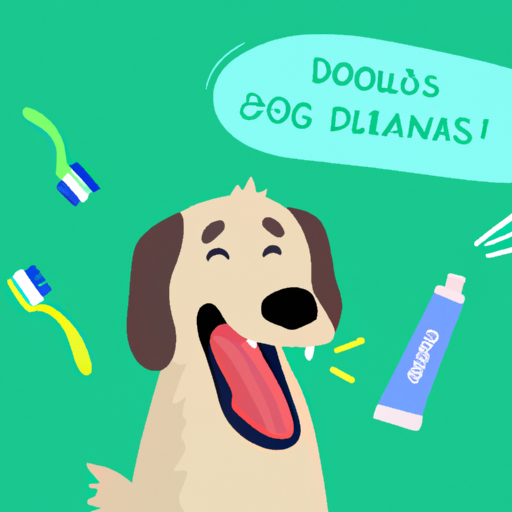Why Brushing Your Dog’s Teeth is Essential
Just as you take care of your own oral health, your dog’s dental hygiene should not be overlooked. Similar to humans, dogs are prone to dental diseases which can lead to serious health complications. Regular brushing can:
- Prevent plaque and tartar build-up
- Freshen your dog’s breath
- Prevent gum diseases and tooth decay
- Prevent loss of teeth
Choosing the Right Toothbrush
When it comes to choosing the right toothbrush for your dog, you need to consider the size of your dog and the comfort level. Here are some pointers:
- Puppy toothbrush: The bristles are soft and it fits into their small mouths.
- Adult toothbrush: Choose one according to your dog’s size. For larger breeds, opt for a toothbrush with an angled head for easier reach.
- Finger toothbrush: These are ideal for dogs who resist brushing. They fit onto your finger allowing for better control.
| Type | Best for |
|---|---|
| Puppy toothbrush | Puppies and small dogs |
| Adult toothbrush | Medium to large dogs |
| Finger toothbrush | Dogs who resist brushing |
Selecting the Right Toothpaste
Human toothpaste is not suitable for dogs due to certain ingredients like fluoride and xylitol which can be toxic to them. Instead, opt for dog-specific toothpaste which comes in flavors like beef, chicken, and peanut butter. These are not only safe but also make the brushing experience enjoyable for your furry friend.
Brushing Techniques
Brushing your dog’s teeth might be challenging at first, but with patience and practice, it can become a routine. Here are some steps to follow:
- Start by lifting your dog’s lips gently.
- Brush the outer surfaces of the teeth using a soft, circular motion.
- Try to reach the back teeth and canines, where tartar builds up the most.
- Finish with a reward to make the experience positive for your dog.
Regular Vet Check-ups
In addition to home care, regular vet check-ups are crucial for maintaining your dog’s dental health. Vets can perform professional cleanings and spot any early signs of dental diseases.
Frequently Asked Questions
Q: How often should I brush my dog’s teeth?
A: Ideally, you should brush your dog’s teeth daily. However, if that’s not possible, aim for at least three times a week.
Q: What if my dog resists brushing?
A: Start slow, let them get used to the taste of the toothpaste and feel of the brush. Reward them after each session to create a positive association.
Q: Can I use human toothpaste for my dog?
A: No, human toothpaste contains ingredients that can be harmful to dogs. Always use a dog-specific toothpaste.
Q: Is bad breath in dogs normal?
A: While a certain ‘doggy breath’ is normal, excessively bad breath could signal dental problems and should be checked by a vet.
Remember, just like humans, dogs also need regular dental care. Start today and ensure your furry friend’s pearly whites stay healthy and strong.



